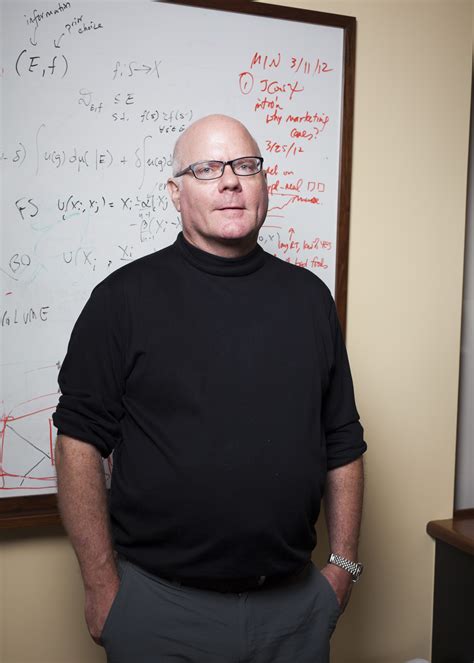A Quote by Thomas Lovejoy
Natural species are the library from which genetic engineers can work. Genetic engineers don't make new genes, they rearrange existing ones. Speaking as World Wildlife Fund Executive Vice President, stating the need to conserve biodiversity, even plants and animals having no immediate use, as a unique repository of genes for possible future biogengineering applications.
Related Quotes
Cheetah genes cooperate with cheetah genes but not with camel genes, and vice versa. This is not because cheetah genes, even in the most poetic sense, see any virtue in the preservation of the cheetah species. They are not working to save the cheetah from extinction like some molecular World Wildlife Fund.
Epigenetics doesn't change the genetic code, it changes how that's read. Perfectly normal genes can result in cancer or death. Vice-versa, in the right environment, mutant genes won't be expressed. Genes are equivalent to blueprints; epigenetics is the contractor. They change the assembly, the structure.
Superficially it's a problem if homosexuality is genetic - if the difference between people's sexual preferences is genetic - because at least a pure homosexual would be unlikely to reproduce and therefore pass on the genes. So the first question you ask is, is it actually genetic, and the answer is probably to some extent yes.
Charles Darwin and I and you broke off from the family tree from chimpanzees about five million years ago. They're still our closest genetic kin. We share 98.8 percent of the genes. We share more genes with them than zebras do with horses. And we're also their closest cousin. They have more genetic relation to us than to gorillas.
Is he a dread genetic determinist, or a dread environmental determinist? He is neither, of course, for both these species of bogeyman are as mythical as werewolves. By increasing the information we have about the various causes of the constraints that limit our current opportunities, he has increased our powers to avoid what we want to avoid, prevent what we want to prevent. Knowledge of the roles of our genes, and the genes of the other species around us, is not the enemy of human freedom, but one of its best friends.
The Visitors reported by contactees, abductees, and other witnesses may, in fact, be a highly advanced amphibian or reptilian culture from an extraterrestrial world, who evolved into the dominant species on their planet millions of years ago and who have interacted in Earth's evolution as explorers, observers, caretakers, and genetic engineers.
It's a very complex network of genes making products which go into the nucleus and turn on other genes. And, in fact, you find a continuing network of processes going on in a very complex way by which genes are subject to these continual adjustments, as you might say - the computer programmer deciding which genes ultimately will work.






























